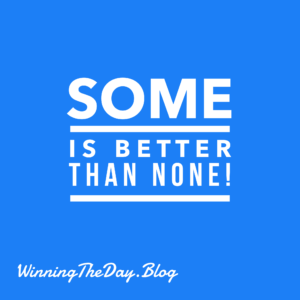Up Your Work Game? Get Moving!
In a recent HBR article, professors Bonnie Cheng and Yolanda Li conducted original research on how physical exercise impacts outcomes in the workplace. The benefits of physical activity on general well-being are widely acknowledged, yet there has been a lack of research on how it impacts outcomes at work, including job performance and health.
As emerging work modes have allowed for greater flexibility and convenience at work it seems we are finding ourselves sitting more and moving less. So, what were some of the key findings?
- Motivation for physical activity predicts physical activity.
- Physical activity improves next-day job performance and health.
- Job self-efficacy shapes the capacity to gain resources from physical activity.
Well, that is compelling, yes!? So how do I get more physical?
- Focus on building a habit of daily physical activity.
- Some is better than none.
- Motivated or not, just get moving!
In a separate study, a lack of time was cited as the most common excuse people give when asked why they don’t exercise. Here’s the truth — we don’t need a lot of time to exercise. All we need is the desire and 10 minutes. Walking just 10 minutes a day is one way to get started.
It seems straightforward that the study concluded that being motivated to partake in an activity would lead to doing the activity, but anyone who has ever made and then abandoned a New Year’s resolution knows this isn’t necessarily the case. Noteworthy is the finding that the more autonomous the form of motivation — in other words, the more people consider physical activity to be a fun and enjoyable activity rather than something to dread — the more likely they are to engage in daily physical activity.
In addition, the study found that daily physical activity generated a package of next-day resources, called “resource caravans,” that contributed to work-related outcomes.
The first resource immediately afforded by physical activity is quality sleep or a person’s degree of satisfaction with their daily sleep experience. Physical activity promotes protein synthesis and facilitates quality sleep as a homeostatic feedback process benefitting the body and brain. The second resource gain is vigor, a resource associated with energy and vitality. The third resource gain is task focus, a cognitive resource that supports enhanced information processing, attention, and concentration.
Interestingly, the study found job self-efficacy, which reflects an employee’s perception of their capacity to perform their job, amplifies the resource-generating benefits of daily physical activity on sleep quality and task focus. People with higher levels of self-efficacy tend to hold stronger positive beliefs in their motivation and ability to acquire work-related resources from daily physical activity.
So, there you have it; if you are looking to up your game at work, become more intentional and disciplined by including more physical activity in your days. Your body will thank you, and your mind will reward you with more energy, better task focus, and improved creativity.
